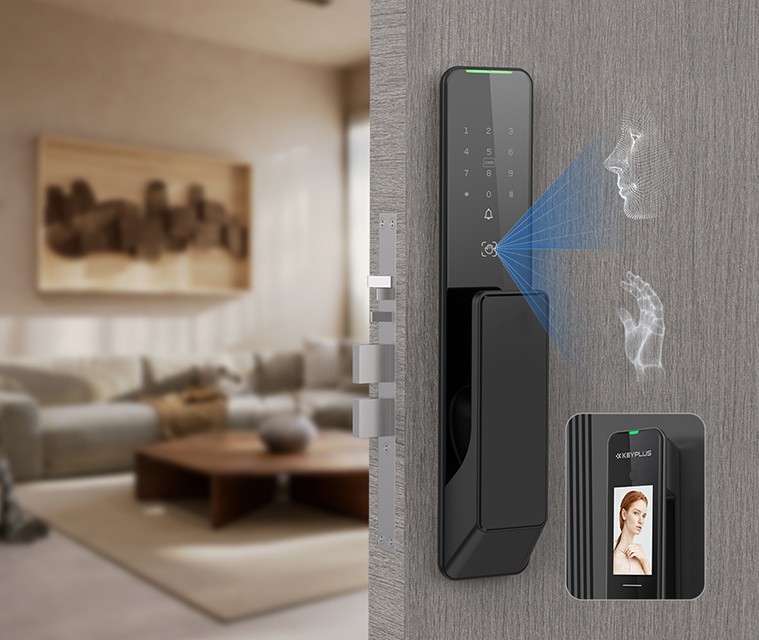Do Smart Door Locks Use Batteries?
Smart door locks are revolutionizing home security across the U.S., offering keyless entry, remote access, and seamless smart home integration. But one common question homeowners have is: Do smart door locks use batteries?
The short answer is: Yes, most do—but not all. Battery life, power options, and backup solutions vary by model.
This guide covers everything you need to know about smart lock batteries, including:
Types of batteries used
How long they last
What happens when batteries di
Battery-free alternatives
Top battery-efficient smart locks
1. Why Do Smart Locks Need Batteries?
Unlike traditional deadbolts that rely solely on physical keys, smart locks require power for:
- Wireless connectivity (Bluetooth, Wi-Fi, Z-Wave)
- Motorized locking/unlocking
- Keypad or touchscreen operation
- Smartphone app communication
Since most homes don’t have wiring near doors, batteries are the most practical power source.
2. Types of Batteries in Smart Locks
A. Standard Replaceable Batteries
- Most common: AA or AAA (non-rechargeable)
- Typical lifespan: 6–12 months
- Best for: Locks with low-power Bluetooth
B. Lithium Batteries (CR123, 9V)
- Longer lifespan: 12–24 months
- More expensive but better in cold climates
- Used in: High-end locks
C. Rechargeable Batteries
- Built-in lithium-ion (USB-C charging)
- Lasts 3–6 months per charge
- Found in: Ultraloq U-Bolt Pro, Aqara U100
D. Hardwired (Battery-Free) Locks
- Rare for homes (common in commercial buildings)
- Require electrical wiring near the door
3. How Long Do Smart Lock Batteries Last?
| Lock Type | Battery Type | Estimated Lifespan |
|---|---|---|
| Bluetooth-Only | CR2032 (coin cell) | 6–12 months |
| Wi-Fi Smart Lock | 4x AA | 3–6 months |
| Keypad + Bluetooth | 4x AA | 12–18 months |
| Fingerprint + Wi-Fi | Rechargeable | 4–8 months |
Factors that drain batteries faster:
- Frequent Wi-Fi/remote access
- Extreme heat or cold
- High-traffic doors (multiple unlocks daily)
4. What Happens When the Batteries Die?
Don’t panic—most smart locks have backup access methods:
A. Physical Key Backup
- Over 90% of smart locks include a keyhole.
- Keep a spare key hidden or with a neighbor.
B. External Power Jump-Start
- Many locks (e.g., August) have a 9V battery terminal for emergency power.
- Some use USB-C charging.
C. Low-Battery Warnings
- Most locks alert you via:
- App notifications
- Beeping sounds
- Flashing LED lights
D. Manual Override
- Some locks allow manual turning of the thumbturn even with dead batteries.
5. How to Extend Battery Life
Use High-Quality Batteries
- Avoid cheap dollar-store brands (risk of leakage).
- Lithium AA/CR123 last longer than alkaline in cold weather.
Optimize Settings
- Disable unnecessary features (e.g., constant motion alerts).
- Reduce auto-lock frequency if possible.
Strengthen Wi-Fi Signal
- Weak Wi-Fi forces the lock to use more power searching for connection.
- Install a Wi-Fi extender near your door.
Choose Bluetooth-Over-Wi-Fi
- Bluetooth-only locks last 2–3x longer than Wi-Fi models.
6. Battery-Free Smart Lock Alternatives
If you hate changing batteries, consider:
A. Hardwired Smart Locks
- Pros: No batteries, always powered.
- Cons: Requires professional installation.
B. Mechanical Keypad Locks
- Pros: No electronics, just a keypad + physical key.
- Cons: No smart features.
7. FAQ: Smart Lock Battery Questions
Can I use rechargeable AA batteries?
Yes, but they may last 20–30% shorter than lithium/alkaline.
Do extreme temperatures affect batteries?
Yes. Below freezing, alkaline batteries lose power faster. Lithium performs better in cold.
How do I know which battery type my lock needs?
Check the user manual or manufacturer’s website.
8. Final Verdict: Are Batteries a Dealbreaker?
Smart Locks Are Worth It If You:
- Don’t mind replacing batteries yearly.
- Want keyless convenience and smart features.
- Use long-life lithium batteries in cold climates.
Consider Alternatives If You:
- Prefer zero-maintenance locks.
- Live in areas with frequent power outages.
Pro Tip: Choose a lock with multiple backup options (key + external power) for peace of mind.
What’s Your Experience?
How often do you replace your smart lock batteries? Share your tips below!
Post time: Apr-24-2025


